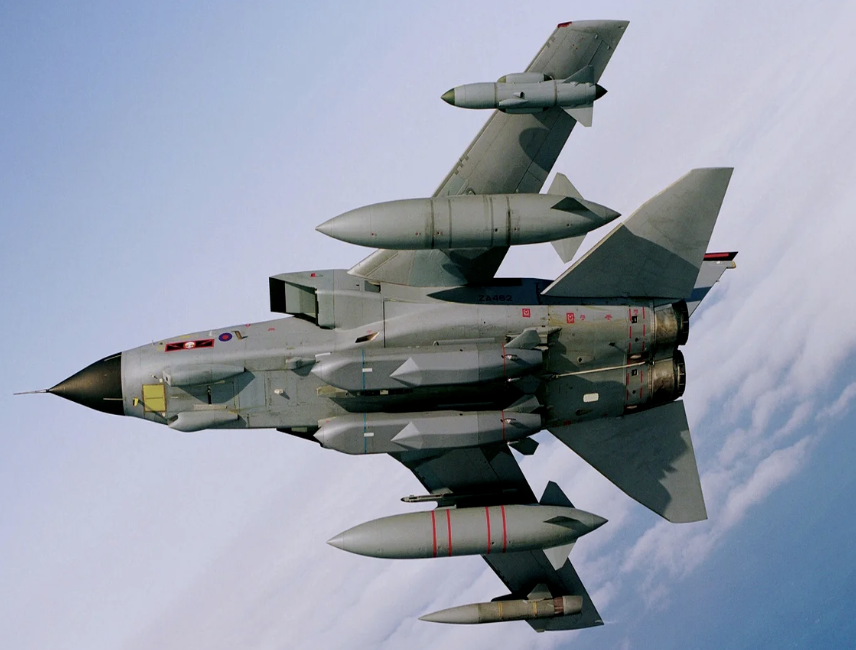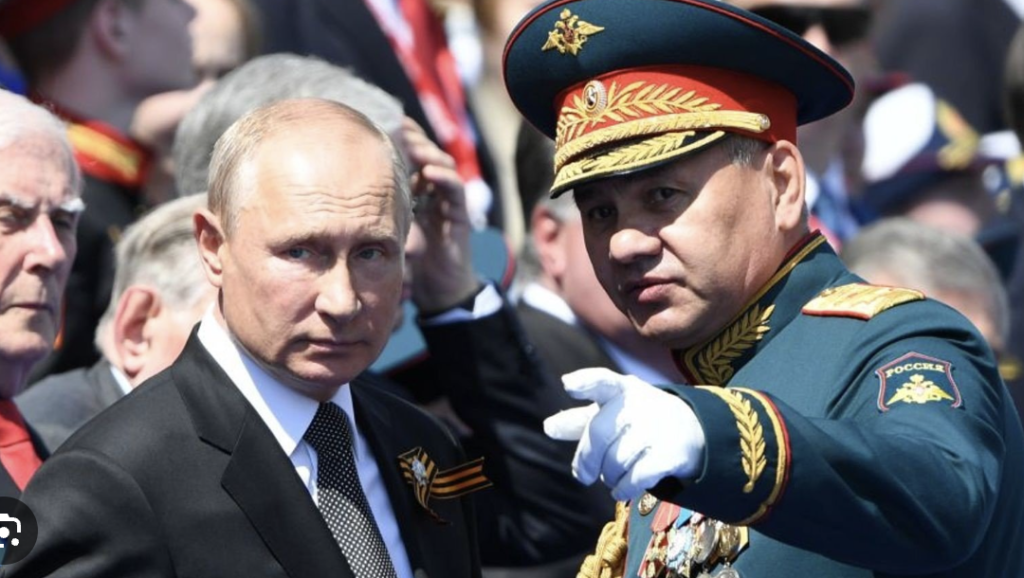In a significant escalation of rhetoric and tensions, Russian President Vladimir Putin has issued a stark warning to the United Kingdom and NATO regarding their support for Ukraine. Specifically, Putin has expressed severe disapproval over the provision of Storm Shadow missiles to Ukraine, viewing it as a provocative act that could potentially lead to a broader conflict.
Storm Cloud on the Horizon
The aptly named Storm Shadow, a long-range air-launched cruise missile developed by the UK and France, has become a focal point in the ongoing conflict between Ukraine and Russia. The missile system boasts a range of over 250 kilometers and is designed to hit high-value targets with pinpoint precision, making it a formidable addition to Ukraine’s military arsenal.
The delivery of these missiles to Ukraine has been seen by Russia as a direct threat to its own military capabilities. Putin did not mince words when he stated that such actions from NATO members are akin to crossing a “red line,” suggesting severe repercussions if the situation persists.
The Kremlin’s Stance
In a televised address, Putin remarked, “The ongoing interference by Western powers in the Ukraine conflict, particularly the supply of advanced missile systems like the Storm Shadow, is unacceptable. Such actions jeopardize regional stability and can provoke an international conflict.”
This statement has sent ripples through the geopolitical landscape, raising concerns about the potential for an escalation that could draw multiple nations into a broader confrontation. The Kremlin’s official spokesperson also weighed in, reiterating that Russia would employ all measures necessary to protect its national security.

NATO’s Response
In contrast, NATO leaders have defended their actions and criticized Putin’s inflammatory remarks. Secretary-General Jens Stoltenberg commented, “NATO is committed to supporting Ukraine in its right to sovereign self-defense against unprovoked aggression. The provision of defensive weapons does not constitute a declaration of war but rather a measure to ensure that Ukraine can protect its citizens and its territory.”
UK Defense Minister Ben Wallace added that the Storm Shadow missiles are intended purely for defensive purposes and emphasized that Ukraine’s sovereignty is a matter of international law and democratic principle. “Russia’s rhetoric is neither constructive nor conducive to peace,” he stated plainly.
Global Reactions
The international community has watched these developments with bated breath, given the already high tensions between Russia and Western allies. Some key reactions include:
- United States: President Joe Biden expressed concerns over Russia’s threats but reaffirmed support for Ukraine.
- European Union: Leaders called for de-escalation and renewed diplomatic efforts to resolve the conflict peacefully.
- China: While advocating for dialogue, China remains non-committal about taking sides, urging both powers to avoid actions that could lead to war.

Potential Consequences
The possibility of an expanded conflict involving NATO and Russia is a scenario fraught with peril. Military experts warn that any miscalculation or inadvertent escalation could have catastrophic consequences on a global scale. The presence of nuclear arsenals on both sides makes the stakes incredibly high.
Economic repercussions are also a major concern. Sanctions on Russia have already had a significant impact, but a further escalation could lead to more severe disruptions in global trade, energy markets, and financial systems.
Hope for Diplomacy
Despite the grim outlook, there are glimmers of hope on the diplomatic front. Both sides have left the door ajar for negotiations, albeit under stringent conditions.
Ukraine’s President Volodymyr Zelensky has aimed to engage in diplomatic talks while simultaneously bolstering his military capabilities. “Our goal is not war but the right to live in peace and sovereignty,” he stated, urging all parties to return to the negotiating table.
Many international observers believe that sustained diplomatic engagement remains the best path forward. The United Nations has called for an emergency summit to address the crisis, aiming to bring together all the relevant stakeholders to find a peaceful resolution.
While the specter of conflict looms large, the collective will of global powers can still steer the situation toward a diplomatic resolution. It is crucial that cooler heads prevail, ensuring that the region does not descend into chaos and destruction.
In closing, it is essential to remember that history often favors those who choose dialogue over discord, peace over war. Though NATO and Russia stand on the brink, a commitment to diplomacy and mutual respect can pave the way for a brighter, more stable future. With sustained efforts and genuine goodwill, the storm shadowing over Europe can give way to a new dawn of peace and cooperation